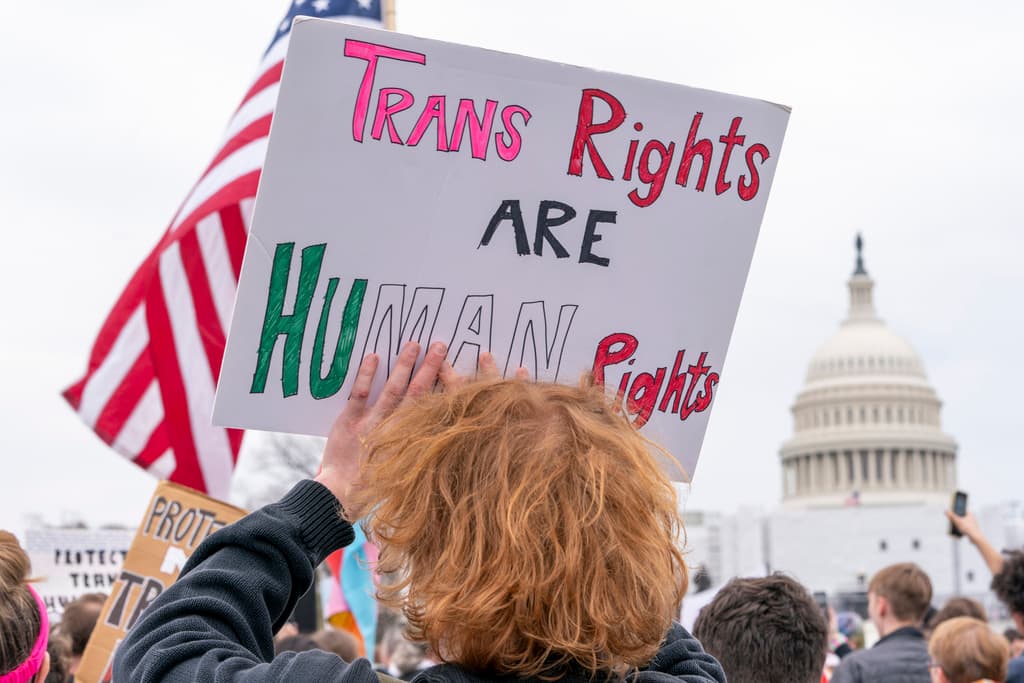High Drama as Second Circuit Is Set To Hear Case of Transgender Runners Who Out-Ran Girls
Fifteen circuit riders, acting on their own, will reconsider a ruling by a panel of their own court.

Quite a drama over transgender athletes appears to be shaping up in the United States Court of Appeals’ Second Circuit, whose full complement of judges will sit Tuesday at New York to hear a plea from female track runners in Connecticut who lost to transgender athletes.
The case, known as Soule v. Connecticut Association of Schools, centers on four female track runners — Selina Soule, Chelsea Mitchell, Alanna Smith, and Ashley Nicoletti. They sued the Connecticut Interscholastic Athletic Conference in 2020, claiming they were deprived of honors, state records, and opportunities to compete fairly at elite levels because they were forced to run against two transgender female athletes.
The Connecticut Interscholastic Athletic Policy states that transgender athletes may compete in the sex category that matches their gender identity, as opposed to their natal sex. The four female track runners lost in 2021 in district court, after a judge sat on the case until the four plaintiffs and the two transgender runners had graduated from high school. The district judge then ruled that the plaintiffs had no standing.
A three-judge panel for the Second Circuit agreed. What makes tomorrow’s hearing so riveting, though, is that the full Second Circuit demanded sua sponte — of its own accord — to hear the case. This could signal that dissent fizzes within the full circuit on how the three panel judges ruled.
The central issue to be argued in tomorrow’s hearing is the question of standing and whether the plaintiffs have an alleged injury that can be redressed by the court. The plaintiffs want state track records to be amended.
“Records matter,” a senior counsel for Alliance Defending Freedom, which is representing the plaintiffs, Christiana Kiefer, tells the Sun. “The girls deserve to have their accomplishments and their achievements rightly recognized in state record books, on their resumes. It impacts not just their standing to get into college but future employers care about those things as well.”
“They won’t be ruling on Title IX, essentially whether this protects a women’s only category of sports and fair competition,” Ms. Kiefer says of tomorrow’s hearing. Yet if the plaintiffs win the appeal, then the case would go back to the district court to argue the Title IX merits. That decision could be precedent setting.
This will be the first federal court case on transgender athletes to be heard in front of a full appeals court panel. There are several other transgender school athlete suits currently making their way through the courts, though most are lawsuits against state policies barring transgender athletes from competing in women’s sports, not against policies allowing for the competition.
Transgender participation in women’s sports has taken a front seat in the culture wars of late. More than 20 states have passed laws barring transgender participation in women’s sports. The Biden administration’s proposed Title IX rule change would bar these blanket bans for schools receiving federal funding, though the policy does allow for case-by-case determinations in higher levels of competition and when the potential for injury is a factor. The issue will likely take center stage in the 2024 presidential election.
The American Civil Liberties Union and the ACLU Foundation of Connecticut will be arguing tomorrow on behalf of the transgender athletes, Terry Miller and Andraya Yearwood, and to defend the Connecticut policy. In a brief submitted to the court, they argue that the four female athletes lost to their transgender competitors in only “a few specific instances.”
They also argue that, while one plaintiff athlete would hold a state record if not for the transgender athlete beating her, this hardly constitutes a real injury after the fact. The brief also points out that all four plaintiffs are now running for college teams, rendering claims of scholarship losses moot.
“Whatever athletic opportunities Title IX may afford to student athletes, Plaintiffs have not demonstrated that a federal order rewriting race records would remedy any Article III harm under these circumstances. All it would do is vindicate Plaintiffs’ alleged ‘interest in having their achievements recognized,’ or getting ‘credit where credit’s due,’” the defendants’ brief states.
“The plaintiffs’ argument is filled with hypotheticals about a dystopia where cisgender girls disappear from the podium, but the court must rely on facts,” a staff attorney for the ACLU’s LGBTQ & HIV Project, Joshua Block, said in a statement. “There is enough room on the victory podium for transgender girls too. Under Title IX, all girls, including transgender girls, should be able to participate fully and equally in athletics, in accordance with who they are.”
The Alliance Defending Freedom, which represents the plaintiffs, counters that this is about more than a “few specific incidences,” and that protecting fairness in women’s sports is the essential mission of Title IX.
“In just three years, those two males broke 17 girls’ track meet records, deprived girls of more than 85 opportunities to advance to the next level of competition, and took 15 women’s state track championship titles,” the Alliance Defending Freedom said in a statement. “Four of those championship titles were earned by ADF client Chelsea Mitchell. Four times she was the fastest female in a women’s state championship race, and four times she watched that title, honor, and recognition go to a male athlete instead.”
The number of young persons identifying as transgender is increasing, so the issue of fairness in school athletics is unlikely to go away. The case could ultimately wind up in the Supreme Court.

